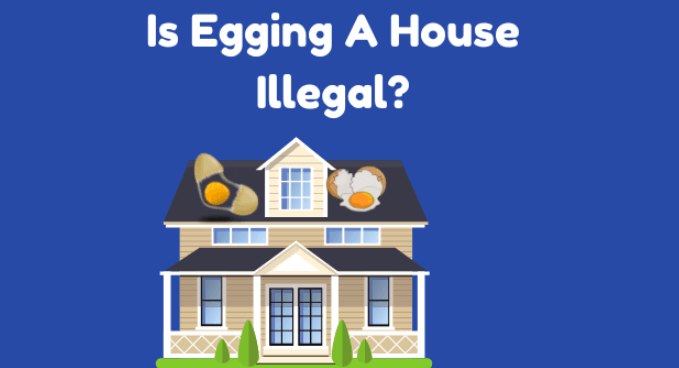Is Egging Someones House Illegal

Egging someone’s house, a seemingly harmless prank often associated with mischief, raises questions about its legality. While it may appear as a harmless act of fun, the legal implications of egging go beyond its surface level.
In this discussion, we will delve into the legal definition, potential criminal charges, and the consequences and penalties one may face when engaging in such an act. By exploring the legal ramifications of egging, we can gain a better understanding of whether this seemingly innocent prank is, in fact, illegal.
Understanding the Legal Definition
Understanding the legal definition of egging someone’s house is crucial in determining whether or not this act is considered illegal. To clarify the legal consequences, it is important to analyze both the intent and motivation behind the act.
The law typically views egging as a form of vandalism, which is the intentional destruction or damage of someone’s property. However, the severity of the legal consequences may vary depending on factors such as the extent of the damage and the intent of the person responsible.
Exploring Potential Criminal Charges
The act of egging someone’s house can potentially lead to various criminal charges depending on the jurisdiction and the specific circumstances of the case. Potential charges may include vandalism, property damage, trespassing, and assault if the act escalates.
However, individuals accused of egging someone’s house may have potential defenses, such as lack of intent or mistaken identity.
It is important to consider the psychological impact of house egging on victims, as it can cause fear, distress, and a sense of violation.
Consequences and Penalties for Egging
Potential consequences and penalties for egging someone’s house can vary depending on the jurisdiction and the severity of the act. In general, individuals found guilty of egging may face legal repercussions such as fines, probation, or even imprisonment, especially if the act causes significant damage or harm.
Additionally, courts may order restitution, requiring the offender to compensate the victim for any property damage. In some cases, community service may also be imposed as a means of punishment and rehabilitation.
Conclusion
In conclusion, egging someone’s house is generally considered illegal and can result in various criminal charges depending on the jurisdiction. The act of throwing eggs at someone’s property can be classified as vandalism, trespassing, or even assault in certain circumstances.
The consequences and penalties for such actions can include fines, probation, community service, or even imprisonment. It is important to recognize the potential legal ramifications and respect the rights and property of others.





